Reforming the WHO: Can the new General Secretary really be an agent for positive change?
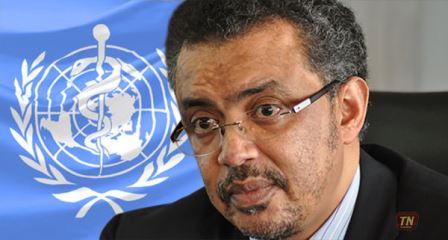 Overshadowed by the coverage of the horrific terrorist attack in Manchester last month, the British media largely missed the election of the new General Secretary of the World Health Organisation on 23 May: Dr Tedros Adhanom Ghebreyesus (or Dr Tedros, as he now styles himself). A former Minister of Health in Ethiopia, he will become the first African head of the WHO when he takes over from Dr Margaret Chang on 30 June.
Overshadowed by the coverage of the horrific terrorist attack in Manchester last month, the British media largely missed the election of the new General Secretary of the World Health Organisation on 23 May: Dr Tedros Adhanom Ghebreyesus (or Dr Tedros, as he now styles himself). A former Minister of Health in Ethiopia, he will become the first African head of the WHO when he takes over from Dr Margaret Chang on 30 June.
Why is this significant? Many question whether the WHO is still relevant or useful. After all, this is the organisation largely credited with failing to respond in a timely manner to the West African Ebola outbreak in 2013-16. This was a failure that many feel contributed to the loss of over 11,000 lives in Liberia, Sierra Leone and Guinea. Some have subsequently argued for it to be stripped of its role in responding to future global health crises. It is certainly true that many functions of the WHO have been taken on by other bodies such as the Global Fund and UNAIDS (both of which Dr Tedros has chaired at one time or another). Furthermore, the US, the largest single donor supporting the WHO, looks likely to reduce its funding under the Trump presidency, putting its long-term financial viability into question.
In short, is the WHO likely to have any real impact on global health over the next decade, or is it now a spent force and an irrelevance?
Dr Tedros’ appointment is significant to answering this question in many ways. Firstly, his appointment has been largely positively received by the global health community and is heavily backed by the African Union. He has a track record as health minister in Ethiopia for cutting through bureaucracy, increasing the health workforce, improving universal access and seeing significant gains in many global health indicators.
At a time when Universal Health Coverage (UHC) is one of the major drives in the Sustainable Development Goals, he comes to the WHO with this as a major agenda item and good track record of achieving results.
Secondly, his appointment comes at the end of a long and transparent process that saw candidates of high calibre from across the globe standing and sharing their vision to improve global health. It is the most open election of the head of the WHO to date.
It would thus seem that Dr Tedros comes with a clear mandate for action and change from the global community. You will be pleasantly surprised if you look at the prices for generic Cialis on this page http://howmed.net/cialis-generic/, the prices are much lower than the brand name pills in the local pharmacy.
Finally, he is, as already stated, the first African General Secretary of the WHO. Africa is seen by many as the continent where the greatest health challenges are to be found, and where the real test of the international community’s commitment to the third Sustainable Development Goal [Ensure healthy lives and promote wellbeing for all at all ages] will be worked out.
However, his appointment is not without controversies. Firstly, despite the backing of the African Union, Dr Tedros’ role is global, not regional, and there are health challenges outside of his home continent that affect billions. Some worry his focus may not be wide enough.
Many have pointed out his involvement in a less than transparent Ethiopian regime with a bad human rights record, and which has been accused of covering up several cholera outbreaks. Whether he is directly complicit in any of this is debatable, but it is a controversy that continues to hang over his appointment.
He is also accused of being an advocate for abortion, and many pro-Life organisations in the global health community are concerned that he may further liberalise the WHO stance on termination of pregnancy.
It remains to be seen if the current openness to working with faith based organisations and faith communities will continue under Dr Tedros’ leadership. The Ethiopian government has had a mixed record in its dealings with faith communities. The WHO has a more positive recent relationship, so we wait to see how Dr Tedros takes this forward globally.
If the WHO is to have a role in the coming decade’s challenges to achieve UHC, develop effective responses to viral epidemics, non-communicable diseases andneglected tropical diseases, to tackle the shortage of trained health workers and tackle the appalling state of maternal and child health, it will need inspired, inspiring and credible leadership. It is too early to tell if Dr Tedros can supply this, but as Richard Horton, editor of The Lancet has pointed out, it is not down to one man. It is the whole leadership team that he develops at the WHO who will drive and implement these changes.
The next few years will therefore show if the WHO can reform, regain its relevance, and be a friend to faith based health work.
We should pray for Dr Tedros as takes up his post later this month, for the team forming around him, and for the direction in which he takes the WHO over the coming years.

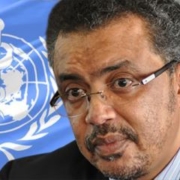
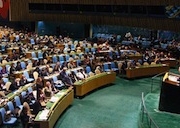
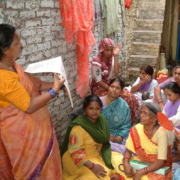

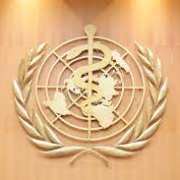

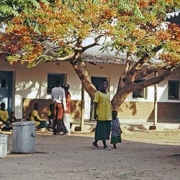
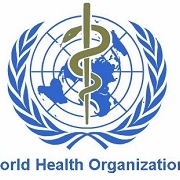
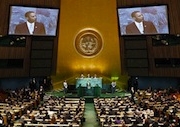


Leave a Reply
Want to join the discussion?Feel free to contribute!